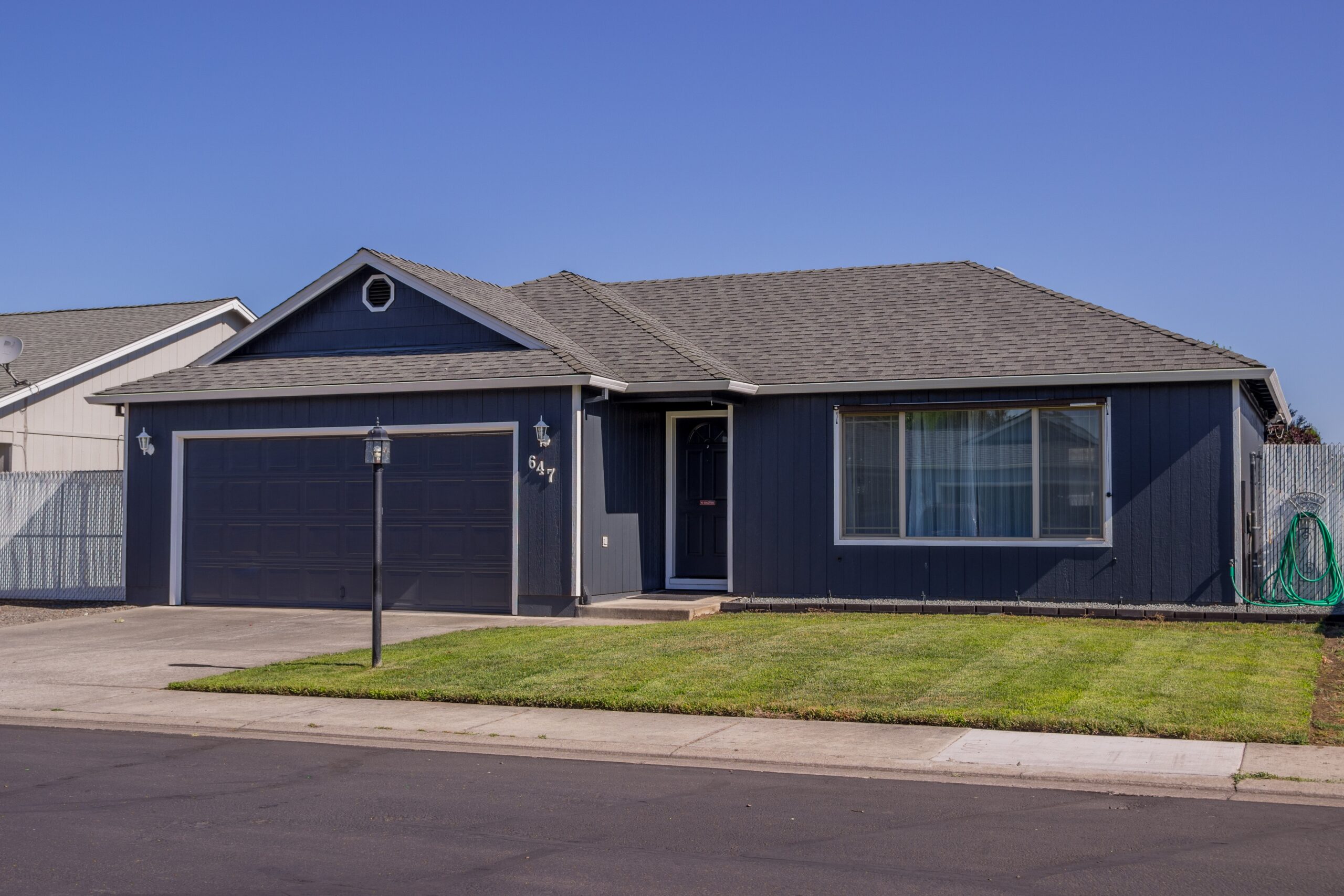
Why are rental properties still a good investment even as interest rates rise?
The 30-year fixed-rate mortgage is one of the most valuable tools available to rental properties investors in the United States. Surprisingly, this type of mortgage is an outlier in comparison to what is typically available in other countries. Most countries offer adjustable, variable, flexible, or renegotiable rate mortgages, all of which carry the risk of an unexpected interest rate hike during property ownership.
Fixed-rate mortgages are not only excellent for avoiding unexpected rate hikes in the future, but there have been notable periods when interest rates on these mortgages have been remarkably low, making the cost of borrowing money almost trivial.
But what happens when interest rates rise, possibly to levels we are not used to seeing? Monthly mortgage payments have suddenly increased, reducing our cash flow returns. Is it time to scale back or stop investing in rental properties? How do you keep your rental property profitable in the face of rising mortgage interest rates?
Understanding how rental properties make money, the factors you can control in a rental property and its profits, and knowing what to look for in a prospective rental property will help set you up for the best chance of success, despite a higher mortgage payment.
Long-Term Investments in Rental Properties
One of the most important things to remember about rental properties is that they are long-term investments. Sure, some people may profit quickly from improvements or value-adds, and others may land deals with significant cash flow from the start. Still, as a general rule, remember that rental properties make the most money in the long run.
When we analyze the finances of a rental property, we frequently only see the cash flow number that is right in front of us. It is easy to overlook the fact that the projected cash flow is simply what is projected today. That figure excludes rent increases over time (while maintaining a fixed mortgage payment), appreciation, demand, and inflation.
All of these variables will change over time, hopefully for the better.
How Does a Rental Property Earn Money?

Rental properties
You may have known that rental properties can be very profitable before learning about real estate investing, but you may not have understood exactly how.
The five ways that rental properties can earn money are as follows:
Tax advantages
Appreciation
Flow of funds
Mortgage payoff creates equity.
Protection against inflation
When you understand the specifics of each of these profit centers, you will not only become more knowledgeable about the benefits of holding a rental property for the long term rather than the short term, but you will also realize that the cost of an interest rate that is a couple of points higher than what you are used to likely does not hold a candle to the profit potential over the rental property’s lifetime.
You should understand how to balance the profit centers. Look for other profit centers with potential if cash flow is down due to a higher interest rate. If you are buying in a gentrifying, high-demand neighborhood, you might think the appreciation potential is very high. Perhaps you are investing during a period of extreme inflation. In that situation, what would you do?
Consider it a bar graph with a bar for each profit center. Is any of the others up if one is down? It is a problem if they are all down. Do those that are higher than usual balance them out? It all depends on your specific situation.
Place a strong emphasis on location and demand. As in the previous example, one of the keys is to invest in properties that will help the appreciation bar, as well as inflation and rent demand. As long as people want to own the property, the greater the profit potential from the profit centers, and the more they will increase over time.
When you understand how rental properties make money, you can start thinking like an investor rather than a consumer.
It is the consumer hat that leads people to believe that rising interest rates are a deal breaker, whereas those who truly understand how rental properties profit will not only learn to look past the interest rates, but will also provide perspectives on how to compensate for them.
Increases in Rent
As previously stated, the projected cash flow of a rental property is based on today’s rents, not tomorrow’s. Rents rise due to two factors: appreciation and inflation.
Guess what does not grow over time and is not affected by inflation or appreciation? When you have a fixed-rate mortgage, this is your mortgage payment.
This means that your cash flow spread will grow over the life of your rental property as you raise rents.
Your expenses, such as property taxes and insurance, may rise over time, but they are unlikely to rise at the same rate as rents. Overall, rents will continue to pull further and further away from your fixed-rate mortgage expense, while profits should grow exponentially.
Increasing Profits While Reducing Expenses

Rental properties
While I have been emphasizing the long term, there are some proactive steps you can take to build equity faster. Let us go over them now.
Enhancing the property
The more desirable your property, the more value it will generate and the higher the demand. While many profit centers will naturally increase the property’s value and rents over time, you can also do things to your property to increase desirability and force those profit increases to happen faster.
Rehabbing a property is the most basic way to improve it. When you make a property nicer and more appealing, you not only increase its overall value, but you can also ask for higher rents. You are simply accelerating your profits past the cost of the higher interest rate.
Refinancing your home loan

Rental properties
Remember that you may not be locked into that higher interest rate indefinitely. Mortgage interest rates, like property and rents, fluctuate. If the interest rate falls below what you signed up for, you can refinance the property at the lower rate. Of course, there is no guarantee that interest rates will fall, but if they do, you can take advantage of the opportunity to increase your cash flow.
Choosing the Best Location
This is not the first time the location of a rental property has been mentioned. You can make even more strategic moves when you learn how to analyze neighborhoods and identify areas with an extremely high chance of appreciation. As was previously indicated, investing in a direction driven by demand will ensure potential appreciation. Gentrification, population growth, and job growth can all increase property values.
Of course, betting on gentrification specifically, as with any appreciation, is speculative. You should not only learn how to identify areas that may experience gentrification, but you should also have a backup plan in case gentrification does not occur.
Increasing Efforts Against Inflation
While inflation is detrimental to most aspects of our lives, it can be advantageous in the rental market. Regardless of what happens to the value of the dollar, your fixed-rate mortgage payment remains constant throughout the loan term. You pay back the loan in today’s money, not tomorrow’s.
Consider the relationship between inflation and the mortgage interest rate. Many experts argue that the interest you pay on a 30-year fixed mortgage is less than the cost of paying cash for the same rental properties in today’s dollars due to inflation.
When the rate of inflation exceeds the rate of interest on your mortgage, your profits will continue to exceed the mortgage’s cost.
Important Points to Remember
It is easy to read this article and conclude that if you keep a rental properties for a long time, it will be very profitable because no matter what your expenses are today, everything will catch up and shift into profit.
That will not be the case for all rental properties. Not all rental properties will be profitable, and a variety of factors may put strain on the various profit centers. It is especially important to remember that speculation does not always work out, and you should avoid it as much as possible.
The purpose of this article is not to mislead you into believing that any property will be profitable, but rather to show you how to look at and analyze potential rental properties with the understanding that a higher interest rate will not eat up as much of your income as you believe.
It is also critical to be educated. For example, what you consider a high interest rate may be “normal,” as we have grown accustomed to historically low interest rates. We have been spoiled, and it has led us to believe that we can only be profitable if our mortgages have ridiculously low interest rates.
Finally, if the interest rate continues to bother you, consider putting more money down on the loan to reduce your payment. Furthermore, as you increase your down payment, you may qualify for a slightly lower interest rate.